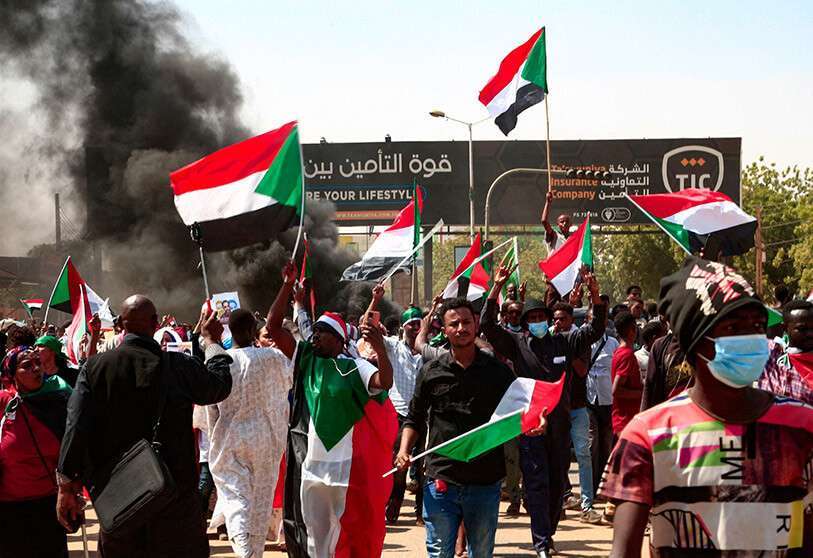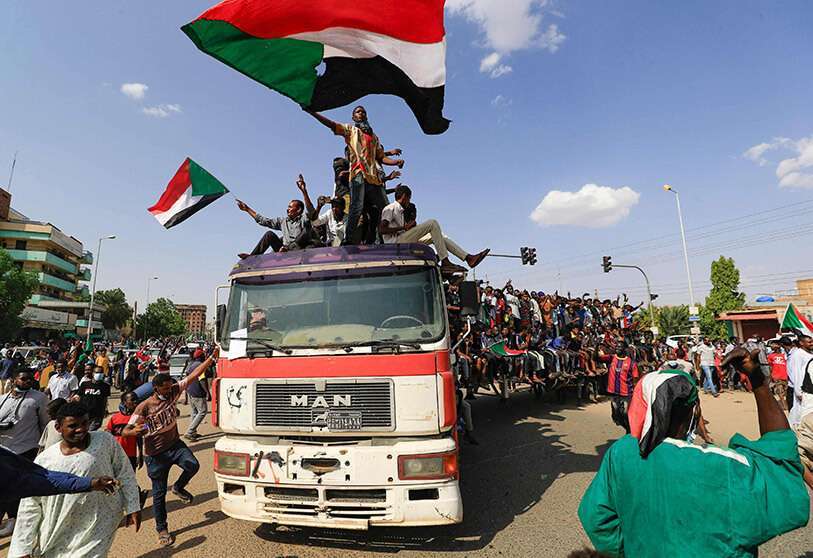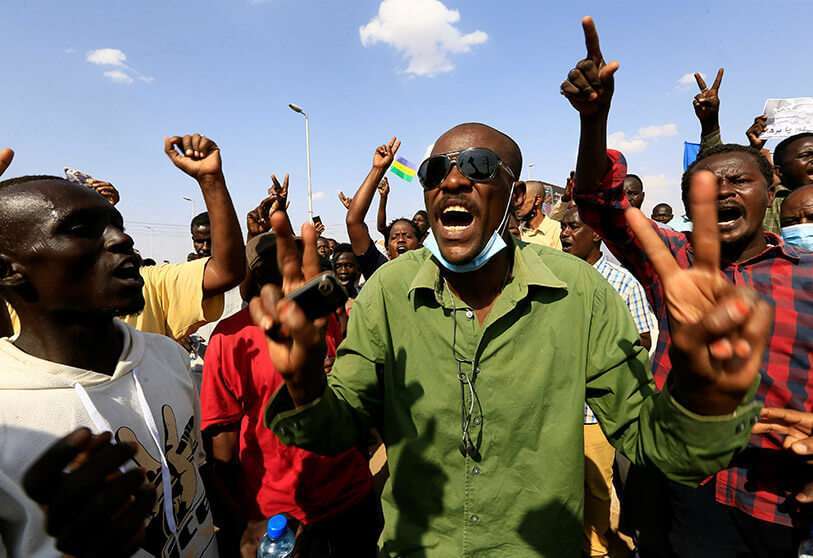Tens of thousands of protesters rally for Sudan's democratic transition

Sudanese society has raised its voice in the face of rallies attempting to disrupt the democratic process that should lead to free elections. While some in favour of the formation of an all-military government demonstrated in front of the Presidential Palace, the vast majority of Sudanese society responded with a rally in defence of the democratic transition that was dreamt of two years ago when the coup d'état was staged against the bloodthirsty dictatorship of Omar al-Bashir, who was prosecuted by the International Criminal Court for crimes against humanity.
At that time, civilians and the military joined forces to overthrow al-Bashir. The ties that made the coup possible seem outdated and the tension between the two sectors is reaching its climax, if it has not already done so. The spirit behind the dictator's ouster was to create a government that would facilitate the transition to democracy, something that part of the population seems to have forgotten over time. But it has not been forgotten by the majority of Sudanese society, who have taken to the streets of Khartoum to defend the democratic process for their country.

At the end of last September, an attempted coup d'état was staged with the aim of restoring military rule. The coup led to a total divorce between the civilian and military wings of the government, which have publicly shown the rift between the two sectors. This event has led to new rallies demanding full military control of the country. These movements have caused tension among those who fought in 2019 for a democratic country and see the meetings in front of the Presidential Palace as the first step in a plot to destroy what has been built over the last two years.
That is why, yesterday 21 October, society took to the streets of Sudan's capital to defend the democratic will that gave birth to the coup against al-Bashir. The Sovereign Council, created in August 2019 to facilitate the process towards free elections, aims to guarantee the holding of elections by the end of 2023. The minority in favour of a military government cite corruption and the economic crisis they say it would cause: "If they want skyrocketing prices and corrupt people in power, that's their choice, we don't want it", said one of the protesters gathered outside the palace.
General Abdel-Fattah Burhan, leader of the transitional government, has come out in defence of the democratic will and called for "unity between the military and civilians". There is some fear within the executive over the possibility of clashes between the two positions due to the escalation of tensions over the past month. The shadow of what happened in Libya after the overthrow of Muammar al-Gaddafi, which led to a major conflict, worries Sudanese leaders who advocate understanding and the democratic process desired by the majority of society.

Despite demonstrations in favour of military rule, the army's official position is to ensure the transition by holding elections in two years' time. Abdalla Hamdok, Sudan's prime minister, says that the priority at the moment is to bring the parties together to reach an understanding that will guarantee, first, the security of the population by avoiding clashes and, second, the transition to a democratic country. As some of the tens of thousands who rallied in defence of democracy said, "the people have elected civilians", they do not want a new military regime.
There is one differential factor that prevents anything other than a peaceful transition to democracy from materialising: the United States. Its omnipresence on the chessboard of the international order was not about to leave Sudan uncovered. Washington has repeatedly warned that, should the military route be imposed, the return of sanctions imposed during Omar al-Bashir's dictatorship would be a reality. The US measures were an important incentive for the outbreak of the coup against the dictatorship, as society's weariness reached a limit that the totalitarian regime could not cope with.










